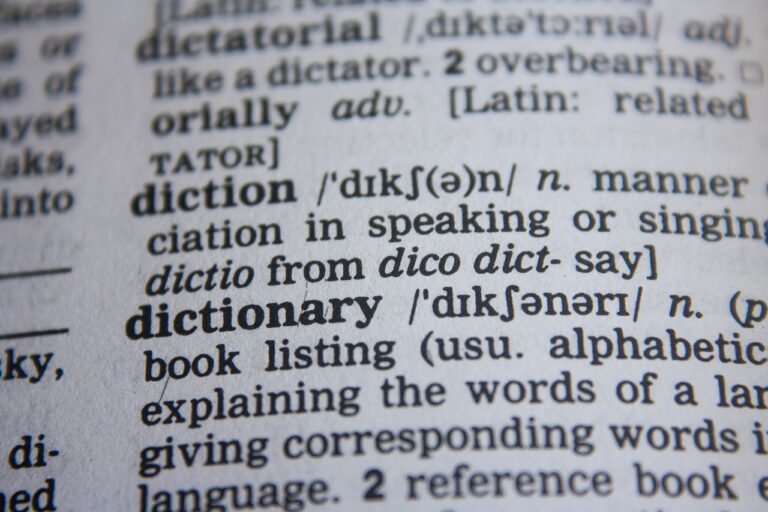Using a dictionary
The many things a dictionary can tell you

For example, a dictionary shows the exact pronunciation of each word. On the previous page, you saw the IPA symbols for all of the consonants and vowels of English. Let’s practice using the symbols to understand pronunciation. Look up a new word in a paper or online dictionary (for example, the word carafe). Depending on the type of pronunciation key used in the dictionary, carafe may appear like this:
- ca•rafe (kəˈræf) n. a glass bottle for serving water, wine, or coffee
syllablestressspellingpronunciationpart of speech
The dot (•) after the first letters indicates syllables. The word carafe has two syllables: ca(1)•rafe(1)
The syllable stress (ˈ) mark shows which syllable gets the stress. For example, the word Lon•don (ˈlʌndən or LONdon) gets stress on the first syllable.
A dictionary shows standard and alternate spelling. For example, gray (US spelling) and grey (UK spelling)
A dictionary shows pronunciation symbols (such as schwa /ə/) which indicate unstressed syllables.
noun (n.), verb (v.), adjective (adj.), adverb (adv.), preposition (prep.), conjunction (conj.), interjection (interj.)
Note: You may see the pronunciation symbols inside [brackets], /slashes/, or (parentheses) depending on the dictionary.
